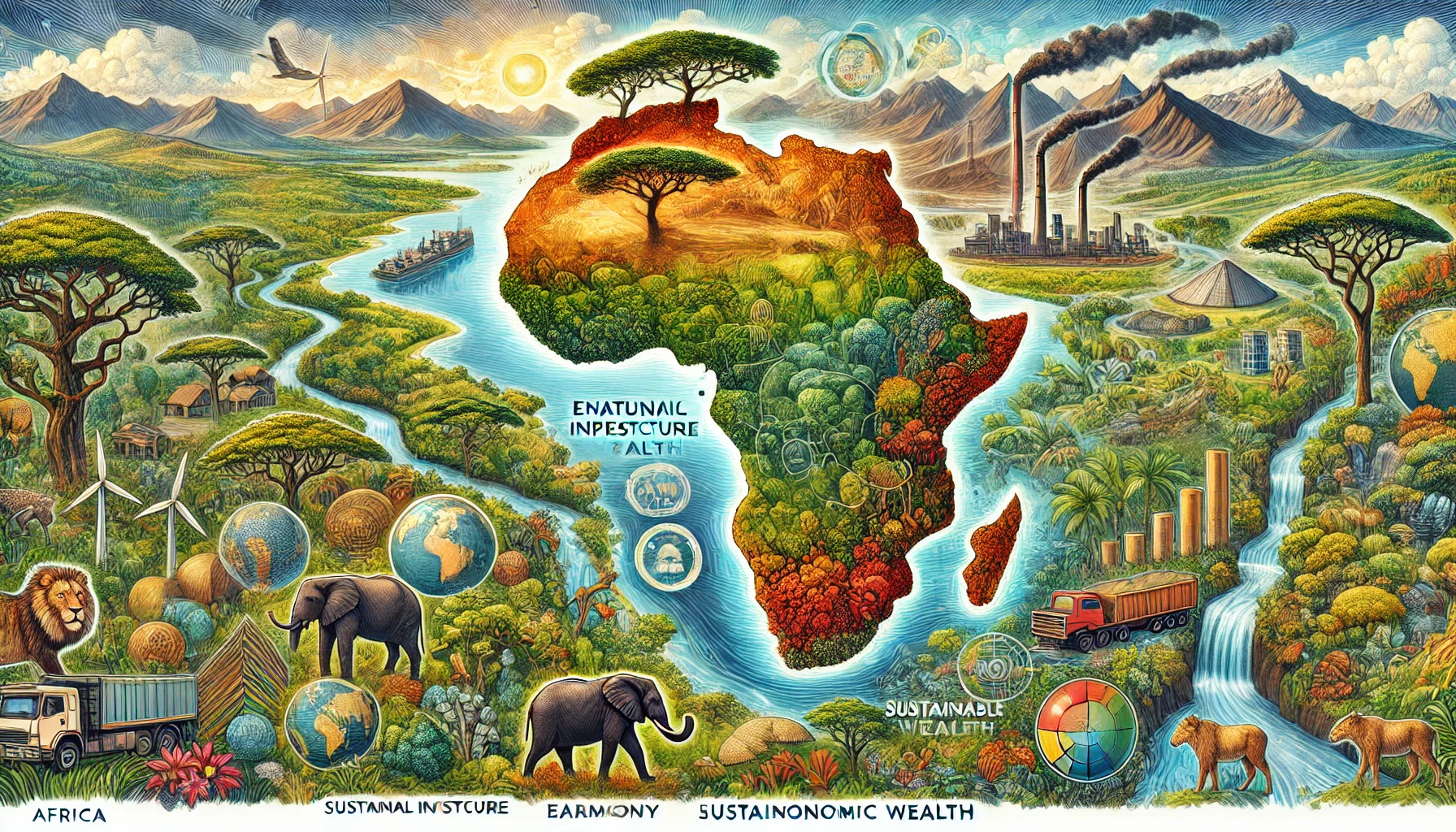Africa’s Natural Resources as Economic Powerhouses: Redefining Value in Global Markets
The African Development Bank emphasizes integrating natural capital accounting into Africa’s GDP to reflect its true economic value, leveraging resources like the Congo Basin's carbon sequestration. This shift aims to attract investments, improve credit ratings, and drive sustainable development across the continent.

The African Development Bank (AfDB), with support from global institutions like the World Bank and UNEP, highlights the critical need to integrate natural capital accounting (NCA) into Africa’s economic frameworks. Traditional GDP metrics fail to capture the continent’s environmental wealth, including vast forests, mineral reserves, and ecosystem services that provide global benefits such as carbon sequestration. This undervaluation not only misrepresents Africa’s economic potential but also perpetuates financial inequities, limiting credit ratings and access to green investments. By recalibrating GDP to include natural capital, African nations could unlock fiscal opportunities, attract sustainable investments, and elevate their standing in global financial markets.
The Cost of Ignoring Africa’s Natural Resources
Africa is home to 80% of the world’s platinum, 77% of its cobalt, and vast forests like the Congo Basin, which sequester billions of tonnes of carbon annually. Despite this, unsustainable practices such as deforestation, mining, and poorly managed agriculture have degraded these assets, reducing their value and impact. Conventional GDP calculations ignore the costs of environmental degradation and the contributions of natural resources, leaving economies undervalued. The AfDB stresses that integrating NCA into economic metrics would not only reflect Africa’s true wealth but also foster sustainable resource management, improving both fiscal sustainability and global perceptions of African economies.
Transformative Examples of Natural Capital Accounting
Countries like Ethiopia, Zambia, and Uganda demonstrate the transformative potential of NCA. Ethiopia has addressed land degradation, which affects 20% of its population and costs up to 6.75% of agricultural GDP, by incorporating NCA into sustainable land management policies. With World Bank support, Ethiopia developed tools to prioritize investment and institutionalize NCA. Zambia, reliant on its extensive forests, has used NCA to highlight the economic contributions of ecosystem services, such as job creation and carbon storage, informing its Vision 2030 goals. Uganda has become a pioneer in ecosystem accounting, leveraging NCA to guide national planning and implement conservation policies, including bans on overharvesting valuable resources like the African cherry tree.
Valuing the Global Impact of Africa’s Ecosystems
Africa’s natural capital, valued at $6.2 trillion in 2018, remains underappreciated globally, particularly for its role in carbon sequestration. The Congo Basin, the world’s second-largest rainforest, stores over 20 billion tonnes of carbon and represents a critical global resource for climate regulation. However, Africa receives minimal financial compensation for this service, with forest-related development aid averaging just $170 million annually. Emerging carbon markets offer a solution, but African credits are undervalued compared to compliance markets like the European Union Emissions Trading System. The AfDB’s Africa Carbon Markets Initiative aims to bridge this gap, projecting Africa’s carbon credit potential at $50 billion annually by 2030, thereby incentivizing sustainable forest management and restoration.
Advancing Economic Frameworks for Sustainability
The AfDB calls for integrating the System of Environmental-Economic Accounting (SEEA) into national accounts to reflect the full value of Africa’s natural capital. Unlike conventional GDP, SEEA includes physical and monetary assessments of natural assets and ecosystem services, offering a holistic view of wealth. This framework has been instrumental in countries like Uganda, where ecosystem accounts have guided post-COVID recovery plans and informed environmental policy. To support these efforts, the AfDB advocates for capacity building, robust data collection, and regional cooperation through initiatives like the Africa Natural Capital Accounting Community of Practice. Such advancements would not only enhance Africa’s economic metrics but also attract investments in green infrastructure and climate resilience.
Bridging the Gap Between Potential and Reality
While methodological challenges remain, the AfDB’s initiatives underscore the transformative potential of NCA for Africa’s development. Proper valuation of natural capital can boost GDP figures, improve credit ratings, and attract international funding, reshaping Africa’s economic narrative. The report emphasizes that by mainstreaming green policies and integrating natural capital into economic frameworks, African nations can transition from being undervalued resource exporters to leaders in sustainable development. This comprehensive approach ensures that Africa leverages its vast natural wealth for inclusive growth, environmental preservation, and a stronger presence on the global stage.
- FIRST PUBLISHED IN:
- Devdiscourse
ALSO READ
World Bank Secures $700 Million for Pakistan's Economic Stability
World Bank Approves $50m Project to Accelerate Sri Lanka’s Digital Transformation
AfDB Hails Launch of Tunisia’s Kairouan Solar Plant, Boosting Energy Security
World Bank Boosts Pakistan's Economic Stability with $700 Million Initiative
World Bank Group Approves Innovative Financing to Strengthen Panama’s Economy










